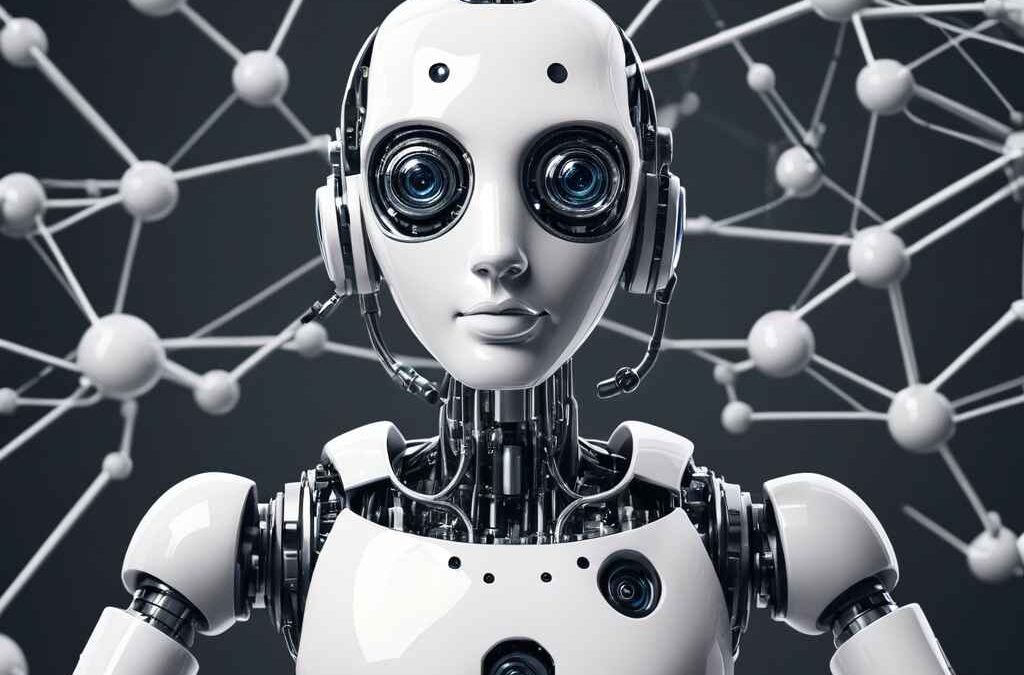Search Engine Optimization (SEO) has been a crucial aspect of digital marketing, helping businesses improve their online visibility. With the rapid advancement of artificial intelligence (AI), the landscape of SEO is evolving. At Codemaster Technology, we understand that AI brings both opportunities and challenges to the SEO world. In this article, we’ll explore how AI is impacting SEO and discuss whether AI can replace traditional SEO strategies.
1. Understanding AI and SEO
Artificial Intelligence (AI) refers to machines’ ability to mimic human intelligence, making decisions, learning from data, and improving over time. In SEO, AI can analyze large datasets, understand user intent, and optimize content for better search engine rankings.
SEO involves optimizing a website to improve its visibility on search engines like Google. This includes using relevant keywords, creating high-quality content, and building backlinks. The goal is to rank higher in search results, driving more organic traffic to the site.
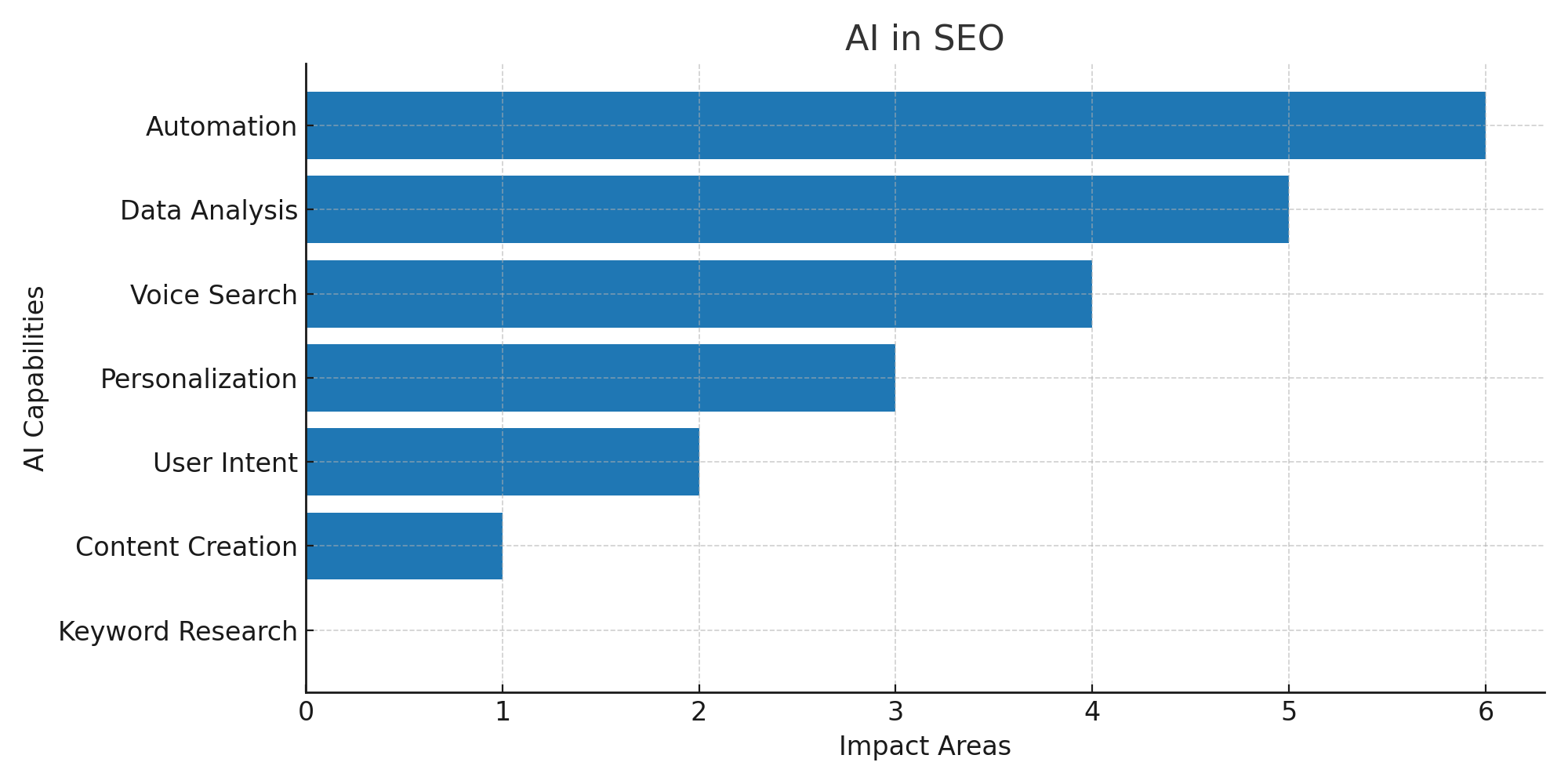
2. AI’s Role in SEO
AI has transformed SEO by enhancing various aspects of the process. Here are some key areas where AI is making a significant impact:
A. Keyword Research and Analysis
Traditionally, SEO experts manually researched keywords to understand what users are searching for. AI tools can now analyze massive amounts of data quickly and identify relevant keywords, user intent, and search trends. This allows businesses to target the right keywords more effectively.
B. Content Creation and Optimization
AI-powered tools can generate content, suggest improvements, and optimize it for SEO. For instance, AI can recommend headlines, meta descriptions, and keyword placements. It can also analyze existing content to ensure it meets SEO best practices, such as keyword density and readability.
C. User Experience and Personalization
AI helps improve user experience by personalizing website content. For example, AI algorithms can analyze user behavior and preferences, delivering personalized content that enhances engagement. A better user experience can lead to lower bounce rates and higher conversion rates, positively impacting SEO.
D. Voice Search Optimization
With the rise of voice-activated devices like Siri and Alexa, voice search is becoming increasingly popular. AI helps optimize content for voice search by understanding natural language and long-tail keywords. This ensures that content is tailored to voice search queries, which often differ from typed searches.
E. Data Analysis and Insights
AI can analyze vast amounts of data, providing valuable insights into website performance, user behavior, and market trends. SEO professionals can use these insights to make data-driven decisions, refine their strategies, and achieve better results.
F. Automation of Routine Tasks
AI can automate repetitive SEO tasks such as monitoring rankings, tracking backlinks, and conducting technical SEO audits. This frees up time for SEO experts to focus on more strategic aspects, like content planning and link-building strategies.
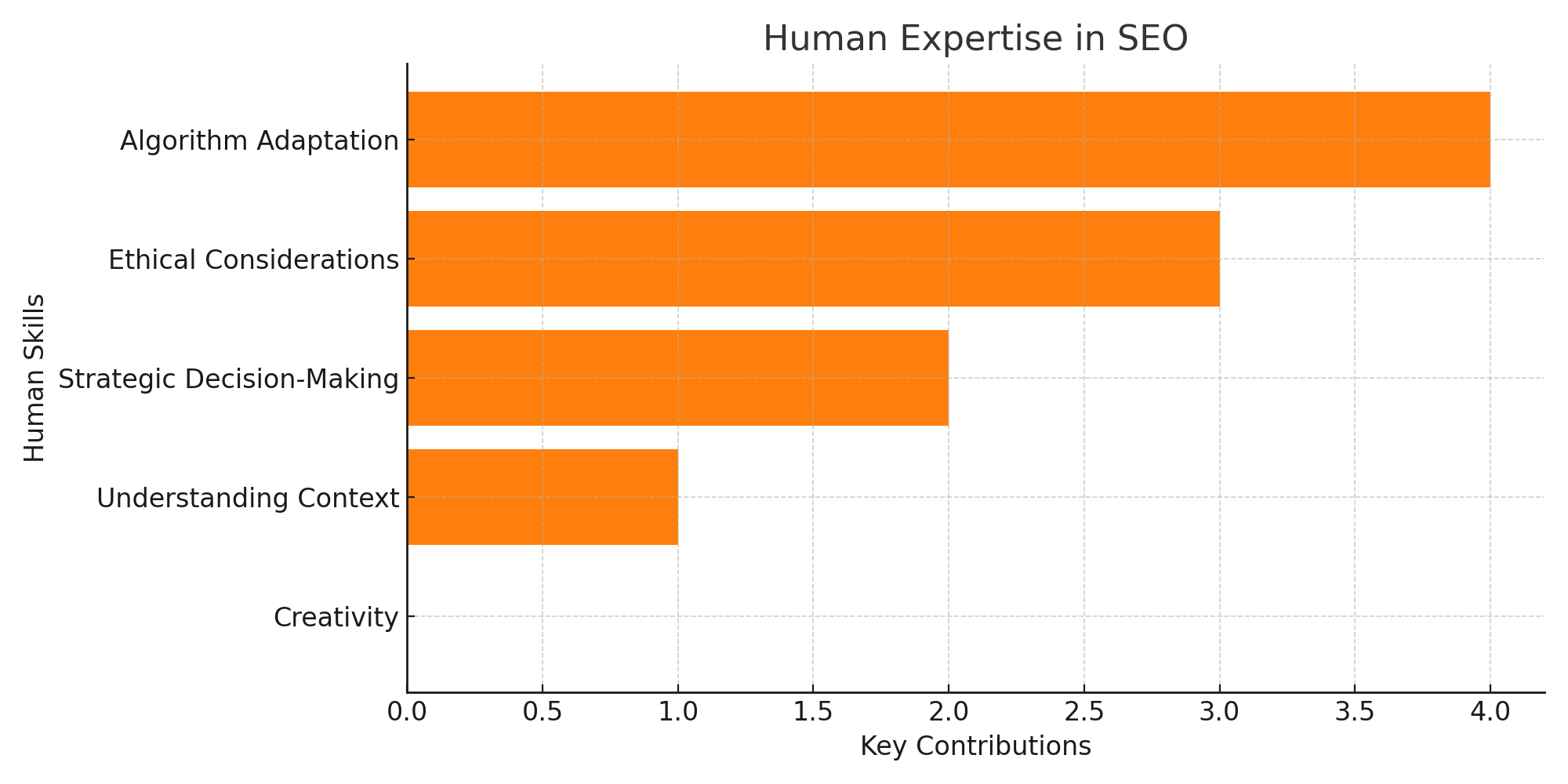
3. AI and Traditional SEO: Complementary, Not Replacements
While AI has revolutionized many aspects of SEO, it’s important to understand that it complements rather than replaces traditional SEO strategies. Here’s why:
A. Human Creativity and Intuition
SEO involves creativity and intuition, which AI cannot fully replicate. Crafting compelling content, building relationships for link-building, and understanding nuanced user behavior require a human touch. While AI can provide data and insights, human experts are needed to interpret and apply them effectively.
B. Understanding Context and Nuance
AI excels at analyzing data but struggles with understanding context and nuance. For example, AI might suggest a keyword that’s technically relevant but doesn’t fit the brand’s voice or target audience. Human SEO professionals can make these distinctions and ensure that content aligns with the brand’s messaging.
C. Strategic Planning and Adaptation
SEO is a dynamic field that requires constant adaptation to algorithm changes, market trends, and competitive landscapes. Human experts can develop and adjust strategies based on these factors. While AI can provide recommendations, the strategic decision-making process remains a human domain.
D. Ethical Considerations
AI-driven SEO strategies must be ethical and align with search engine guidelines. Black hat SEO techniques, such as keyword stuffing and spammy link-building, can lead to penalties. Human experts ensure that AI tools are used ethically and responsibly, protecting the website’s reputation.

4. The Future of AI in SEO
The future of SEO lies in the synergy between AI and human expertise. As AI technology continues to advance, it will play an even more significant role in SEO. However, human creativity, intuition, and ethical considerations will always be essential components of a successful SEO strategy.
A. Enhanced Content Creation
AI will continue to assist in content creation by generating ideas, optimizing content, and ensuring it meets SEO standards. However, the unique voice and storytelling that only humans can provide will remain crucial for engaging audiences.
B. Advanced Personalization
AI will enable even more personalized user experiences, tailoring content to individual preferences and behaviors. This level of personalization will enhance user engagement and satisfaction, further improving SEO performance.
C. Improved Predictive Analytics
AI will become more proficient at predicting trends and user behavior, allowing businesses to stay ahead of the curve. By leveraging AI-driven insights, companies can anticipate changes in search engine algorithms and adjust their strategies accordingly.
D. Ethical AI Use
As AI becomes more integrated into SEO, ethical considerations will become increasingly important. Businesses will need to ensure that their use of AI aligns with ethical standards and respects user privacy. Human oversight will be crucial in maintaining these standards.
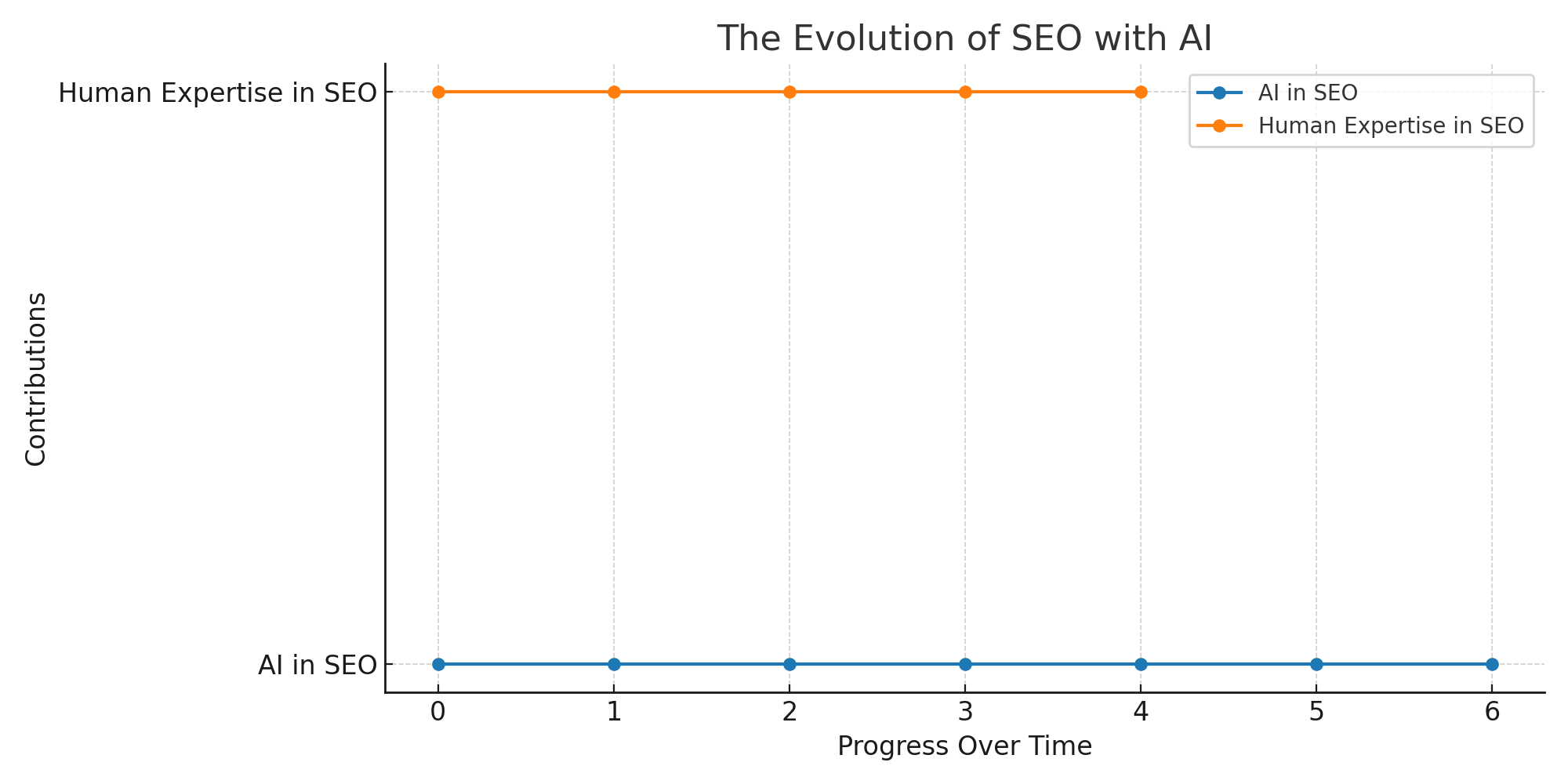
5. Practical Steps for Integrating AI into SEO
For businesses looking to integrate AI into their SEO strategy, here are some practical steps:
A. Leverage AI Tools for Keyword Research
Utilize AI-powered tools like SEMrush, Ahrefs, or Google’s Keyword Planner for efficient keyword research. These tools can identify relevant keywords, analyze competition, and provide insights into user intent.
B. Use AI for Content Optimization
Implement AI tools like Grammarly or Clearscope to optimize content for SEO. These tools can suggest improvements in grammar, readability, and keyword usage, ensuring that content is both engaging and SEO-friendly.
C. Monitor Performance with AI Analytics
Use AI-driven analytics tools to monitor website performance, track user behavior, and gather insights. Google Analytics and Google Search Console are excellent tools for understanding how users interact with your site and where improvements are needed.
D. Prioritize Ethical SEO Practices
Ensure that your use of AI in SEO adheres to ethical guidelines. Avoid black hat techniques and focus on providing valuable, user-centric content. Transparency and ethical practices will build trust with your audience and protect your website’s reputation.
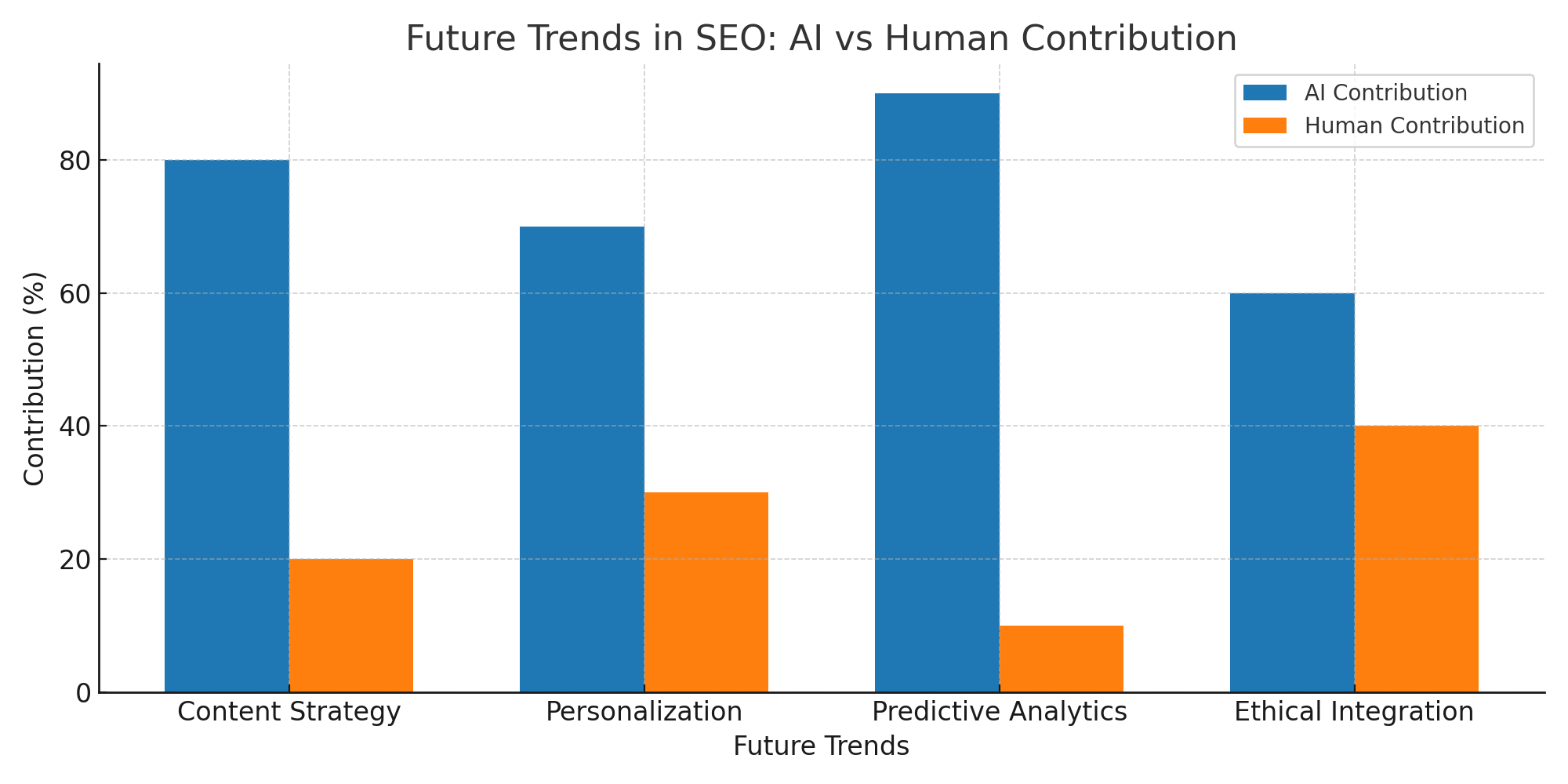
Conclusion
AI is undoubtedly transforming the SEO landscape, offering powerful tools and insights that enhance the effectiveness of SEO strategies. However, it cannot fully replace the human elements of creativity, strategic thinking, and ethical judgment. At Codemaster Technology, we believe that the future of SEO lies in a balanced approach, where AI and human expertise work together to deliver exceptional results. By embracing the strengths of both AI and traditional SEO, businesses can achieve sustainable growth and long-term success in the digital world.
